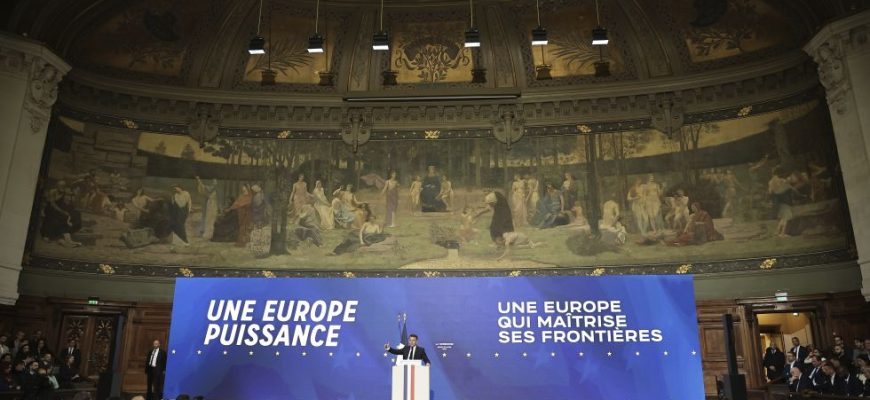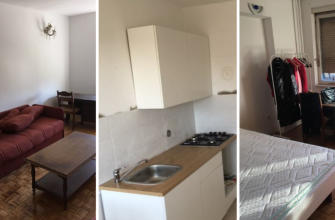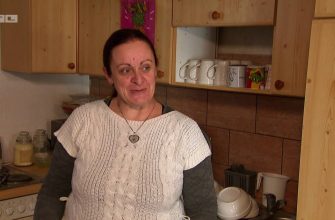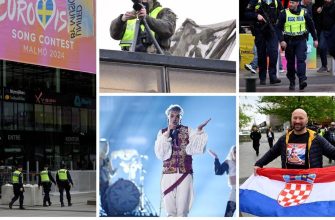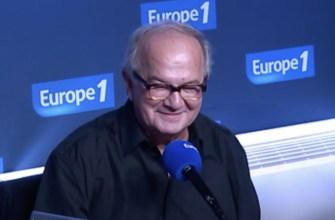In the end, it was a typical Macron speech that government members and MPs, journalists and students heard on Thursday morning in the Sorbonne in Paris. It was too long, the president himself admitted that after about an hour. Too complicated, too, many listeners agreed: for almost seven years, translators, analysts and often Macron’s own advisors have been struggling with the metaphors and the convoluted three-, four- or five-point plans of the president, the most recently popular in France was accused of no longer reaching his fellow citizens.
And yet it was a speech that no current top German politician could possibly give. An emotional speech, sometimes angry and disappointed, sometimes confident, sometimes rousing. A courageous speech, with a firework of analyzes and proposals, that addressed many pressing questions for the future of the EU. Between defense policy, the green and digital restructuring of the economy and international trade policy, the protection of borders and asylum policy and the dangers for the liberal democracies of the West, one central concern determined this long speech: the sovereignty of the EU – an echo of the first Sorbonne speech of 2017, which has remained the obsession of the youngest and most pro-European president in French history.
Disappointments in defense policy
Right from the start, Macron measured himself against his own promises, particularly in security and defense policy, where strengthening the EU’s sovereignty is most urgently needed. In 2017 he proposed an EU intervention force, a defense budget, a doctrine for the armed forces and the promotion of a strategic culture. Developments in world politics have since proven him right; Russia’s invasion of Ukraine since 2022 has not only left Germany looking “blank” in terms of security policy. But the EU has still not implemented Macron’s proposals and so the security of 450 million EU citizens in November could once again depend on a few thousand voters in US swing states.
If you follow Macron, there have been successes since 2017 that need to be built on after the European elections. In security policy, this includes the European Intervention Initiative (E2I), which 13 EU states have joined since 2017. The initiative was only able to have a real operational impact as part of the special forces mission “Takuba”, which fought terrorist groups in the Sahel under French leadership from 2020 onwards. Berlin refused to participate and Takuba ended after a few months. The operation could not prevent the EU from being pushed out by Russia and other states in the Sahel and from losing massive influence. If Takuba is portrayed as a success, the EU’s common security and defense policy (CSDP) is in bad shape.
Successes that should be expanded in the future
What was really successful from a French perspective, however, was the initiative to strengthen European sovereignty in economic policy, which Macron, as expected, highlighted in his speech. The fact that the federal government agreed to take on common EU debt in 2020 in the context of the Covid pandemic is seen across party lines in Paris as the president’s biggest European policy victory since 2017. Macron recalled that the then finance minister and current German chancellor, Olaf Scholz , even spoke of a “Hamilton moment” in an interview, alluding to a permanent common EU budget. For Macron, this remains the prerequisite for real EU sovereignty and thus a goal for the remaining three years of his presidency.
You might also be interested in:
People in France are confident that they will be able to persuade the federal government to take this step in the coming years. In his speech, Macron repeatedly referred to a report by former Italian Prime Minister Enrico Letta, which was published recently and contains proposals to strengthen the EU’s internal market and joint investments and is expected to influence the agenda of the next EU Commission.
While Macron gave his Europe speech, journalists in Brussels speculated about the French president’s support for Mario Draghi, another former Italian head of government who has ambitions for the Commission presidency. The incumbent German President, Ursula Von der Leyen, was not mentioned at all in Paris. Draghi will also present recommendations for increasing EU competitiveness – in line with Macron’s wishes.
Signals to the German partner
The shared debt will inevitably lead to renewed conflict between Germany and France in the coming months. Perhaps that is why Macron praised the relationship with Germany so often, underlining the value of the Aachen Treaty signed in 2019, the cooperation during the pandemic and two joint defense projects that have recently made progress.
However, the French president still made a few points. He underlined the importance of nuclear power for the EU’s energy supply, praised French initiatives to form a “nuclear alliance” at EU level and called for the expansion of the “Europe of the Atom”. More surprising than this old conflict were his allusions to the traffic light coalition’s cannabis legalization. According to Macron, some partners considered the liberalization of drug policy to be right, which in his view was wrong. Rather, the authority of the state must be strengthened.
Fault lines in German-French relations
Aside from these factual issues, the major fault lines in German-French relations also became clear in the Sorbonne speech: Macron repeatedly emphasized the danger for the EU of becoming a “vassal” of the USA, of losing its independent voice in the world and becoming one “Tip of the West” to degenerate. According to Macron, the era of free trade and globalization is coming to an end, and he is trying to establish the triad of European dependencies that is often cited in France these days, and which are usually aimed particularly at Berlin: on Russian gas, Chinese sales markets and US security guarantees. Both the USA and China are increasingly ignoring international rules that only the EU adheres to. The Union is acting “naively”, putting the competitiveness of its industries at risk and threatening to fail because of itself.
A noticeable fear of decline ran through Macron’s speech, and not just with regard to the economy. The old fear of Europeans, especially the French, of being culturally dominated by the USA also flashed up in many cases. The multilingualism of Europe’s youth, which Macron invoked in 2017, is in bad shape. Despite Brexit, English dominates the EU institutions in Brussels. Nothing is likely to change in the future, on the contrary. Thanks to Netflix and TikTok, young people across Europe speak the same language. According to Macron, the EU hardly controls this digital space anymore and does not produce any content. Even worse than the decline in multilingualism is that the EU no longer offers positive narratives.
For observers of French politics, Macron’s concerns about the survey results for the European elections were clearly evident here. His party alliance is far behind the right-wing party Rassemblement National, whose 28-year-old leading candidate Jordan Bardella is particularly popular with first-time voters and on social media. The second Sorbonne speech was therefore expected to be Macron’s campaign aid for his party’s top candidate in the European elections, Valérie Hayer. But Macron limited himself to a few allusions, probably because he was perceived as a burden for his party for the first time during the election campaign.
Farewell to Macron
While preparing his speech, Macron probably thought back to the first Sorbonne speech in 2017 more than once. The new speech heralds the beginning of his farewell as President of France. He has around three years left to transform the optimistic promises made at the beginning of his term into a European policy legacy that will outlast his presidency.
At the end of his speech, Macron quoted Hannah Arendt: “The only way to influence the future” is to “make promises and keep them.” Macron has made a lot of promises since 2017. Because no matter what else you think of him: he is a visionary unlike any he or she has seen in the Chancellery for many years. Perhaps that is why the great European Wolfgang Schäuble wanted a speech from Macron as a tribute to his political life’s work.
However, Macron still owes the EU the second part of the Arendt quote, the fulfillment of promises, in many areas. Macron knows this. And so in parts of his speech he seemed like a driven person, someone who was running out of time. This was also matched by another quote that Macron placed at the end of his speech and which raises the biggest question of all, the answer to which is anything but certain in France: based on Ernest Renan’s famous lecture, also given at the Sorbonne, in 1882 , entitled: “What is a nation?”, Macron demanded that the EU must ask itself the same essential question. If he succeeds in this impulse in the next three years, the EU would again have an offer, also for the young listeners of his speech. And Macron would have kept his great European policy promise.
Karl-Theodor zu Guttenberg in conversation with Daniel Gräber
Cicero Podcast Politics: “We box very much below the weight class we could have”
